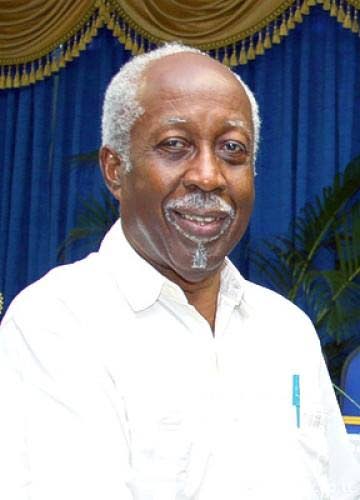What new world order?

REGINALD DUMAS
THE UNITED Nations (UN) emerged in 1945 from the rubble and trauma of World War II. Much of Europe lay in ruins. Germany had already surrendered; Adolf Hitler, increasingly deranged, had seen his racist dreams of Aryan supremacy and Jewish extermination evaporate, and had committed suicide – a rational act in the circumstances. A few months later, atomic bombs dropped on Hiroshima and Nagasaki brought Japanese resistance to a juddering halt. The US was pre-eminent in the world, and, while still firmly hewing to its colonialist 19th century Monroe Doctrine of head-mastering the western hemisphere, would, through the Marshall Plan, assist Europe to stand again on its own two feet.
The war’s victors were not about to practise the democracy most of them preached, and the 1945 UN Charter made that clear. There would in the UN be a General Assembly which would consist of all UN members. But there would also be a Security Council which would have 15 members, of which five – Britain, China (now Taiwan), France, the Union of Soviet Socialist Republics (now Russia) and the US – would be permanent, a quintet supreme, vested with certain powers the other UN states would not have.
Each of the five, for instance, would have a veto, and other states agreed “to accept and carry out the decisions of the…Council in accordance with the…Charter.” Also, other states could be suspended or expelled on the council’s recommendation. The converse didn’t hold true: no other state could cause the suspension or expulsion of a “permanent” member. Victory in war assures certain privileges, difficult not to deem colonial even in an organisation that piously proclaims “the sovereign equality of all its members.”
And how have our five “leaders,” sworn to pacific settlement of disputes, been conducting themselves over the decades? As you might expect, and as we see today in the Russia/Ukraine conflict: an intense focus on the protection and advancement of their self-interest, usually presented to us as actions in the global interest.
Look at the record. George Bush and Tony Blair find in Iraq “weapons of mass destruction” that don’t actually exist, and create new Middle East problems that dog us daily. France and the US illegally remove from office the democratically elected Haitian president Jean-Bertrand Aristide, as if they had never advocated democratic elections as a fundamental factor of countries’ constitutional development.
Showing profound contempt for the very UN of which his country is a “leader,” Vladimir Putin shells Kiev while, as he knows, the UN secretary-general, Antonio Guterres, is visiting the city. His “precision-guided” missiles had previously hit an apartment building, killing civilians, instead of the munitions factory his men were aiming at. Some precision. He drops hints of the use of nuclear weapons, and threatens to retaliate against Finland and Sweden if they join NATO. Some pacifist.
Previously, he had discovered Nazis all over Ukraine. Not content with such discoveries, his foreign minister, Sergei Lavrov, recently suggested – it would have hastened the Fuhrer’s descent into insanity – that Hitler was part-Jewish. And, just to demonstrate his evenhandedness in international affairs, Lavrov asserted that “even Jewish people say that the biggest anti-Semites are the Jews themselves.” I wonder what George Orwell would have made of that? “All Jews are Nazis, but some are more Nazi than others?”
China has its severe human rights issues, though you’re unlikely to hear its canny president, Xi Jinping, permanently half-smiling, discuss them in public. And Britain now has a prime minister, Boris Johnson, who, even before acceding to the post, was being accused of all manner of sins against which the UN is said to stand: sexism, racism, colonialist positions, Islamophobia. He was also said to possess a flair for mendacity which even politicians, whose skills in that area are legend, regarded as admirable.
Johnson has said that many of his comments were “satirical” or taken out of context. I note, though, that he once claimed that British colonialism in Africa was “not a blot on our conscience. The problem is not that we were once in charge, but that we are not in charge anymore.” Perhaps that too has been taken out of context, but the British Virgin Islands, Caricom and the UN generally would do well to bear it in mind.
Covid19, climate change, new technologies and geopolitics are certainly ushering in a new world order. But what kind? To whose benefit? I wrote in a previous article that we everywhere needed, above all, equality, equity, justice, genuine dialogue, an absence of condescension – basic UN principles, if you like. They exist in theory, of course, but I regret I cannot even glimpse consistent implementation of any of them on the horizon.


Comments
"What new world order?"